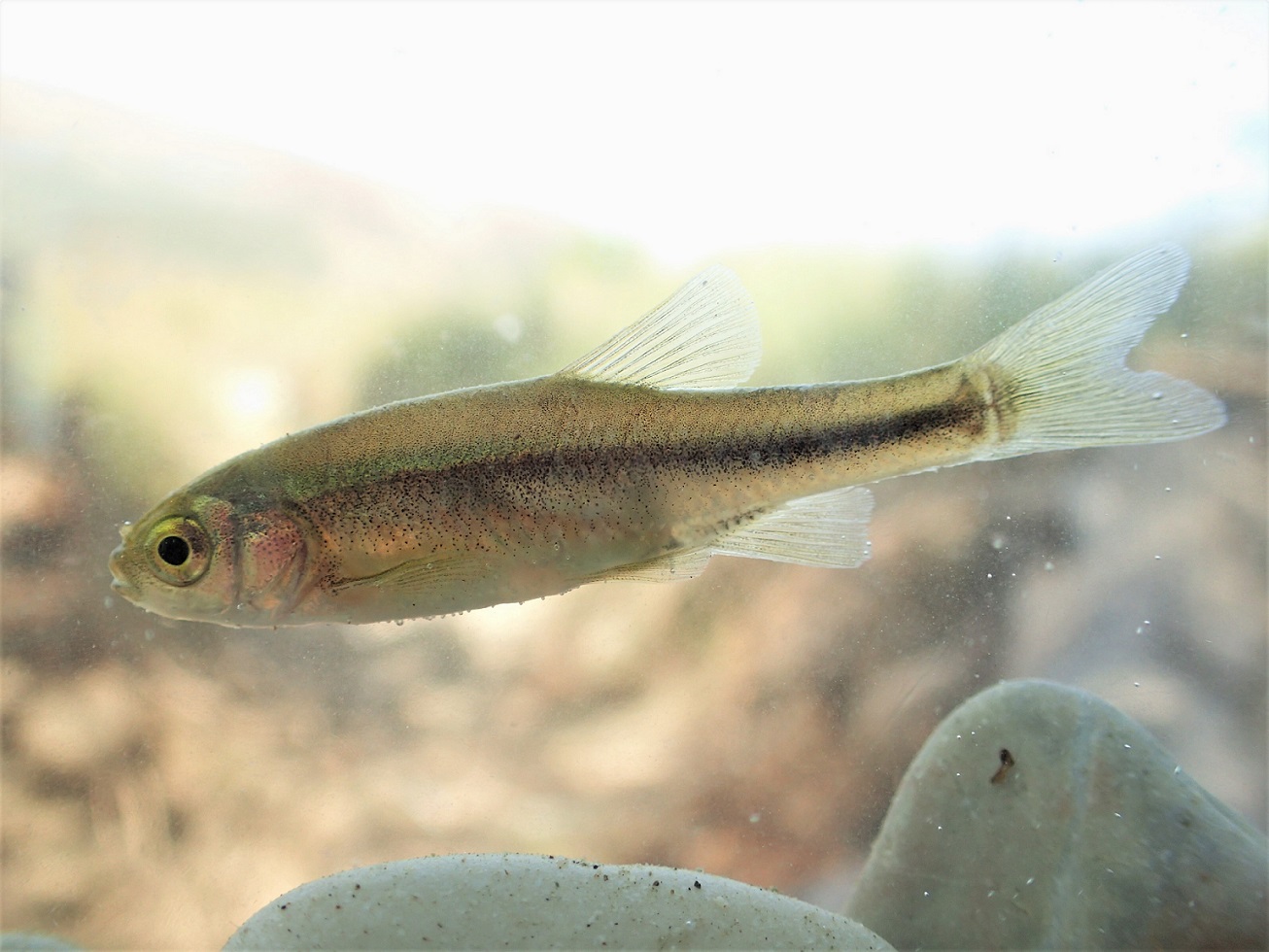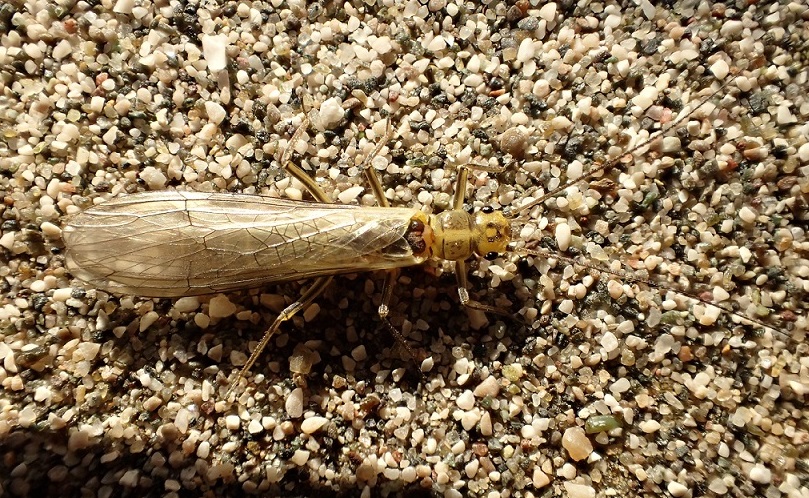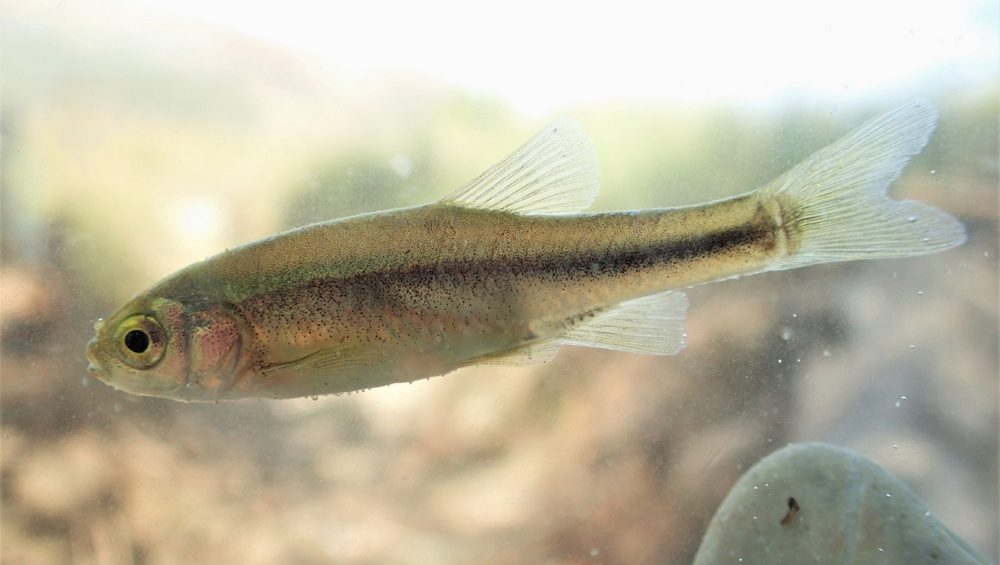++International team of scientists finds 300 species in just one week, including a new type of fish and insect++ Sediment transport could reduce power production at the Pocem hydropower plant to the point of stopping it for 25-30 years++
Tirana, Vienna, Radolfzell; September 19, 2017. In April of this year, about 30 scientists from 4 countries conducted studies in the area of the Počem hydropower plant(in Albanian) on the Vjosa River. Today they presented their findings in Tirana. In just one week, 300 species of living things have been found, including 2 new species previously unknown to science: a new type of fish and an insect. This new insect will be named after its host, Isoperla vjosae. While the new species of fish has not yet been named by the scientist who discovered it, it is thought to be named after the pot. Several comparative tests must be performed to be absolutely certain that it is indeed a new species of fish. While another 40 types of species have been found for the first time in Albania (find the preliminary report with the list of species).

The international team of scientists has reached the following conclusions:
- Vjosa is a river of European importance in terms of biodiversity. It is a wonderland for many species of animals and plants which are very rare or have completely disappeared in other rivers of Europe.
- If the hydropower plants in Vjosa (Pocem and Kalivac) will be built as planned, many of these living things will disappear as a result of the radical change in biological conditions.
- The first measurements of the transport of sediments (gravel and sand) show that the electricity production of the Počem hydropower plant would cease within 25-30 years, as the reservoir would be completely filled with sediments.
- It is imperative that a comprehensive research program be carried out before decisions are made on granting permits for the construction of hydropower plants in Vjosa. In addition to flora and fauna, such a study should also include a detailed examination of sediment transport, as well as an assessment of impacts on groundwater.

According to Prof. Fritz Schiemer from the University of Vienna and coordinator of studies in Vjosa, the first assessment can only be seen as the beginning of a more in-depth study: “It is incredible what we have discovered in just one week. Our results show that a continuous study of biodiversity and sediment transport is absolutely necessary”, said Prof. Schiemer.
“Cooperation with our colleagues from Austria and Germany is a very good start for further studies in Vjosa. We want to expand international cooperation to preserve this rare river in Europe. The government should create a National Park instead of building dams,” says Prof. Aleko Miho from the University of Tirana.
Dr. Christoph Hauer from the University of Natural Resources and Life Sciences (BOKU) in Vienna has for the first time carried out measurements of the riverbed profile up to two kilometers in width. “Our assessments confirmed a situation where everyone will soon be lost if the Počem hydropower plant is built. In addition to the extinction of species, energy production will be drastically reduced, since the mass transport of Vjosa sediments will fill the designed reservoir with gravel and sand within only 25-30 years. Additional measurements are necessary and mandatory according to international standards,” says Dr. Christoph Hauer.
Additional information:
- The Vjosa is the last wild river in Europe that flows continuously. The Albanian government plans to build two large hydropower plants (Poçem and Kalivaç) in the most valuable parts of the river. Between April 23 and 29, 2017, scientists from Albania, Austria, Germany and Slovenia have researched the area around the Pocem HPP. Find our press release about Vjosa’s Research Week, the Der Spiegel article about the activity (in English!) and the video, published on the Patagonia-Blog, “The cleanest line”.
- Find HERE a preliminary report on the first finds of selected species. The report was recently sent to the Berne Convention. A more complete edition of Vjosa Research Week is expected in 2018.
- In May 2017, the Administrative Court in Tirana ruled in favor of the lawsuit brought by the NGOs and the affected residents, declaring the contract for the Poçemi hydropower plant invalid. The Albanian government has appealed this decision. As an alternative, NGOs and residents demand the establishment of a national wild river park which would constitute the first wild river park in Europe.








